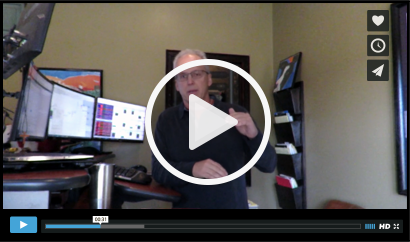I have limited online access during exchange hours (I work!). I am considering using stock contingency orders for options. What is your opinion of this?
Stock contingency orders with respect ot options means that you place an order to sell your options when the underlying stock hits a certain price. This is opposed to setting s top on the option itself. There are advantages. First, in thinly traded options (less than 100 open interests is our usualy cutoff point, but very liquid options have over a thousand open interests) stop losses do not work as well. You have the problem of market maker manipulation as well as not having the order triggered until there is a trade at your stop price. If the option is not liquid, i.e., there are not a lot of trades in the option, your stop could be passed over. If it is a stop loss, the next lower trade would trigger the stop; with a stop limit, it would not be triggered until there is a trade at your price. Second, you don’t have to chance an incorrect stop point based on the delta. While you can be pretty accurate in calculating an option’s price based on the delta when the stock hits a certain price point, you might be a bit off. If you do not allow for this and move your stop order inside where you think the price should be when the stock makes the targeted move, you could be close but not get the execution. The stock could rebound on you and you miss your sell point. Given that sometimes a stock itself turns a bit ahead of where it was anticipated to fall, you can see how you could miss out on an execution at times.
In summary, using contingency orders based on the stock price for options has advantages. You have to have a broker that allows you to do this, however. More do it now so that is not as much of a problem.

